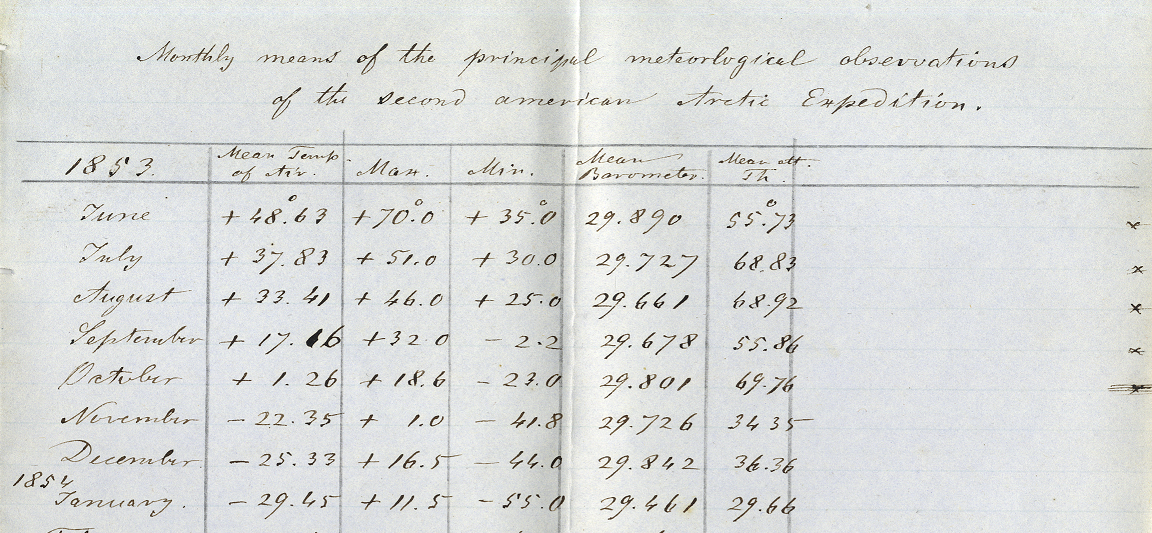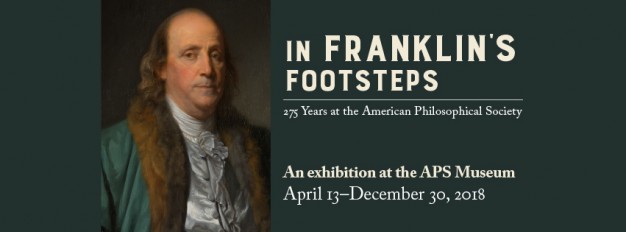In Franklin's Footsteps: 275 Years at the American Philosophical Society Now Open
They calculated the size of the solar system, explored distant lands, shed light on the origins of life, unearthed ancient fossils, invented computer technologies, cured diseases, and walked on the moon. What did these accomplished people have in common? They were Members of the American Philosophical Society. Now open in the Society's Philosophical Hall, In Franklin’s Footsteps: 275 Years at the American Philosophical Society, tells the story of the nation’s oldest learned society and how its Members have changed the world.
Highlights in the exhibition include Benjamin Franklin’s library chair, an original journal from the Lewis and Clark Expedition, Charles Darwin’s handwritten title page of On the Origin of Species, and Neil Armstrong’s annotated and signed copy of the moon landing transcript. The exhibition draws out stories of collaboration and debate on divisive topics, many of which have occurred at the Society’s biannual Meetings of Members and in APS publications. A section on nuclear energy covers APS Members’ contributions to atomic research, including materials from Enrico Fermi, E. U. Condon, and Henry DeWolf Smyth. These scientific breakthroughs prompted APS Members to hold a symposium on the ethics of nuclear weapons at a 1945 Meeting, which featured remarks from J. Robert Oppenheimer and resulted in a letter to President Truman advocating for freedom of academic research on atomic energy.

Special labels written by current APS Members show the enduring significance of objects selected for the exhibition. Climate scientist Warren M. Washington highlighted the importance of explorer Elisha Kent Kane’s meteorological data collected in Greenland from 1853 to 1855. This type of historical record allows scientists like Washington to track long-term climate trends. Anthropologist and paleobiologist Nina Jablonski’s label accompanies the handwritten title page to Charles Darwin’s On the Origin of Species. Jablonski noted that Darwin only mentioned humans once in the book, but he provided the theoretical framework for understanding human evolution.

The exhibition opening also will unveil the product of a Super Bowl bet with the Boston-based American Academy of Arts and Sciences (i.e. Patriots fans.) The Eagles beat the Patriots and the APS received from AAAS a loaned set of Benjamin Franklin’s manuscript writings on his electricity experiments.
The exhibition will be open Thursday–Sunday through December 30, 2018 in Philosophical Hall, 104 South Fifth Street, Philadelphia. Admission is free, but donations are encouraged. Groups can schedule tours by contacting [email protected].

